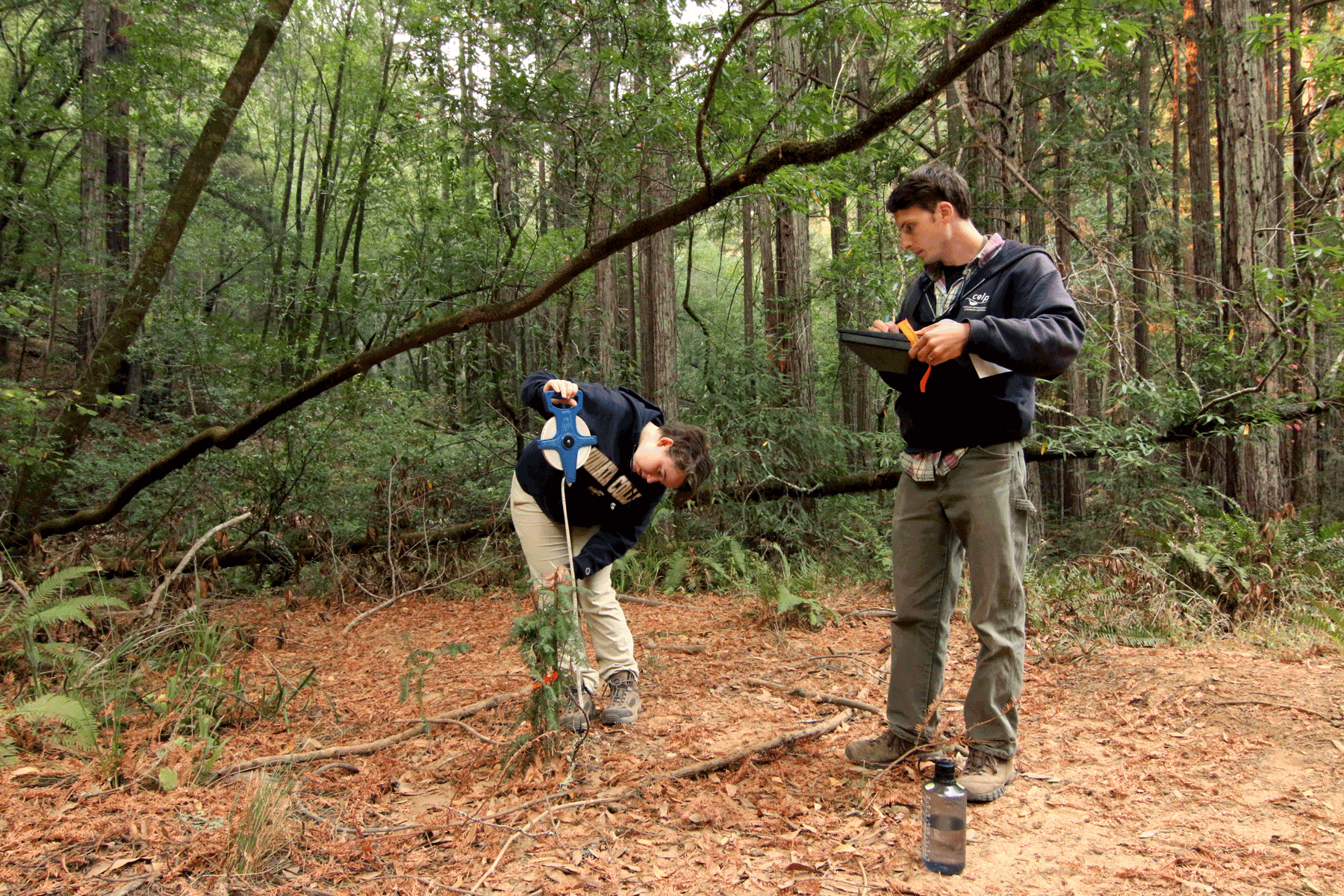With this internship, I formed a completely new perspective on local restoration.
I just completed my internship with Turtle Island Restoration Network. This was my second job after graduating from Juniata College (Huntingdon, PA) in May of 2017 with a B.S. in Environmental Science. I am currently in the early phases of applying for graduate school, where I hope to earn a Masters or PhD in plant ecology.
This position put me in charge of monitoring all of the Coast Redwood trees that Turtle Island Restoration Network is planting through their 10,000 Redwoods Project.
All of the redwoods planted as part of the project are monitored regularly once they are planted. When I arrived in August, this was my first responsibility. I traveled out to feed, water, and measure the trees that had already been planted. To do this, I first had to learn about the nutrient needs of the trees, as well as their root structure, to care for them properly.
In early November, I began to collect redwood cones and seeds. To collect the best seeds, I had to learn about the redwood’s life history- specifically, when they dropped the mature cones. The healthiest seeds come from trees that are more than 100 years of age. The location of these older trees determined where I collected the cones.
The most time-intensive part of my position was sowing the collected seeds, lasting two months. Before I started planting, I developed a prototype experiment to test the best way to grow the redwoods. I am in the process of gathering results, which will determine which tests have been most successful. The results will inform Turtle Island Restoration Network’s redwood growing process in the future, and will also give the organization information to distribute to other redwood growers.
Designing this experiment will be especially beneficial for me in graduate school. It is an experience that not everyone has before they reach the post-graduate level. The experiment is on a small scale, but when I design others in the future, I believe that it will be easy to apply the experience I have gained and simply scale it up.
The past six months have greatly improved my plant identification skills and general plant knowledge. I have a better idea of plant families and how they are related. I know many northwestern plants to a species level, knowledge that will help me get other jobs in the region. In the field of botany, plant ID is the name of the game.
With this internship, I formed a completely new perspective on local restoration. While I had completed vegetation monitoring and invasive species before, I had never taken a conservation-based position. I have realized that although restoration involves a lot of work up until everything is in the ground, it was startling to me just how easy it can become afterwards. Nature does its work with a speed and persistence we can only dream of.
While I will be using the skills gained in the last seven months mostly to further my career, they will stay with me in a way that will also color my everyday life.




